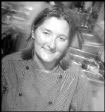You get a lot of bang for your buck if you book Saul Williams into your arts festival, as we’re about to find out on three separate Bumbershoot stages (film, literary, musical) this weekend. Saul Stacey Williams, 27, is best known for his lead in the 1998 film, Slam, which he also co-wrote. The movie, which is about the redemptive power of poetry, was adored by critics, did well in theaters and video, and won awards at Sundance and Cannes. (There’ll be a screening of Slam at Intiman on Sunday at noon; Williams will answer questions after the show.)
Williams is shooting another movie next winter, but despite his burgeoning film career, his main interest, he says, is music. What kind of music? He won’t categorize it because he doesn’t like the categories. When pressed, he says it combines the licks of Nigerian Afrobeat legend Fela Kuti and the late Russian classical polystylist Alfred Schnittke. With a viola, cello, electric guitar, drums, e-bass, and a DJ, Williams raps, sings, chants, and recites in a rhythmic, litanical, hip-hoppity, literary-music fusion that sometimes alternates between sounding medieval and like a Southern chain gang. He calls it “experimental.” (The group will play the Rhythm Stage, Mon at 3:30.)
A rarity in the spoken-word world, Williams is published by real publishers. He’s produced two slim poetry books in two years. Out this year, She (MTV Pocket Books) includes images by performance painter Marcia Jones and a CD of Williams reading the work. The Seventh Octave (Moore Black Press, 1998) is a collection of his early poems. (Williams reads at the Alki Stage Mon at 7:30.)
Williams’ skills were cultivated in New York’s slam-poetry scene. He’s the 1997 Nuyorican Poet Caf駳 Grand Slam Champion and veteran performer at metaphor joints all over the country. Slam poetry, invented 15 years ago in a blue-collar Chicago bar, is competitive poetry reading. Poems are timed and judged by bar patrons chosen at random. The notion of competitive poetry is absurd, of course, but it’s offset by the nonseriousness of the inexpert, drunken, and always farcical judging, which itself stirs up wild audience responses and ultimately makes for some raucous literary nights. Though they can be tedious, poetry slams are an anarchistic form that tries to stick it in the ear of the poetry establishment—the academics and so-called “page poets.”
For all of Williams’ performance skill and background (he has an MFA in acting from NYU), his poetry speaks well from the page. She is an intimate foray into his relationships with the women of his life—the lovers, his mother, his 3-year-old daughter Saturn, a goddess or two, and his own feminine side. He loves women, it’s obvious. He’s more than a little bamboozled by them, but inspired and energized by the fascination.
i’ve known sleeping women and have learned to tiptoe into their aroma and caress myself they’ve taught me how to sleep
The movie Slam is not like Williams’ real life, except that like the hero, Ray, poetry and self-examination are the vehicles for his successes. In a poetic voice that’s phat and spare, sweet and blunt, he’s not political or pissed off—he’s a spiritual seeker and sharp observer. A traveler with one eye on a higher plane, Williams keeps the other eye—a very critical one—on his own path. And, like most of us, he frets about the journey:
i don’t trust the man that i am becoming he seems too much and seldom is
Check out our literary picks for Bumbershoot.







